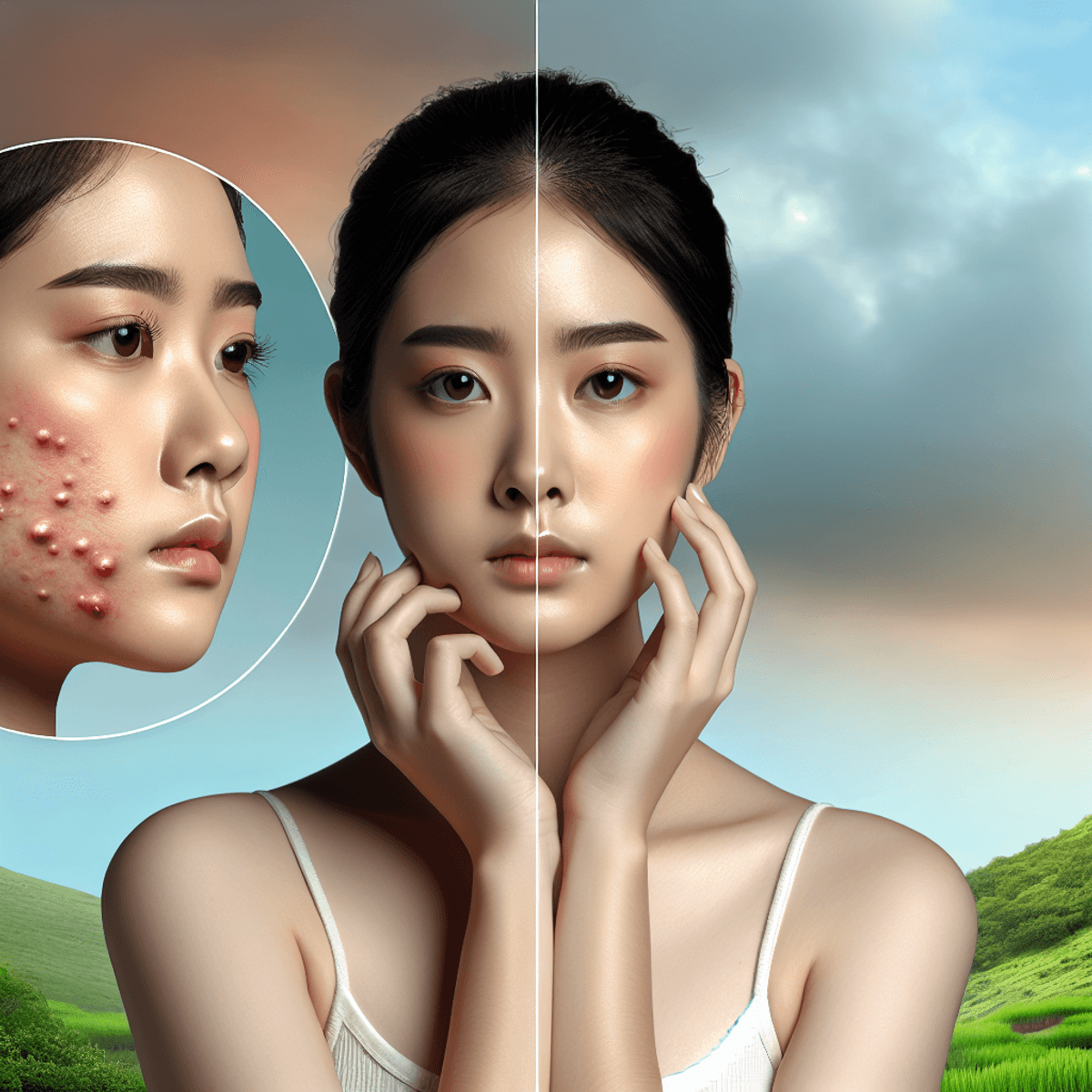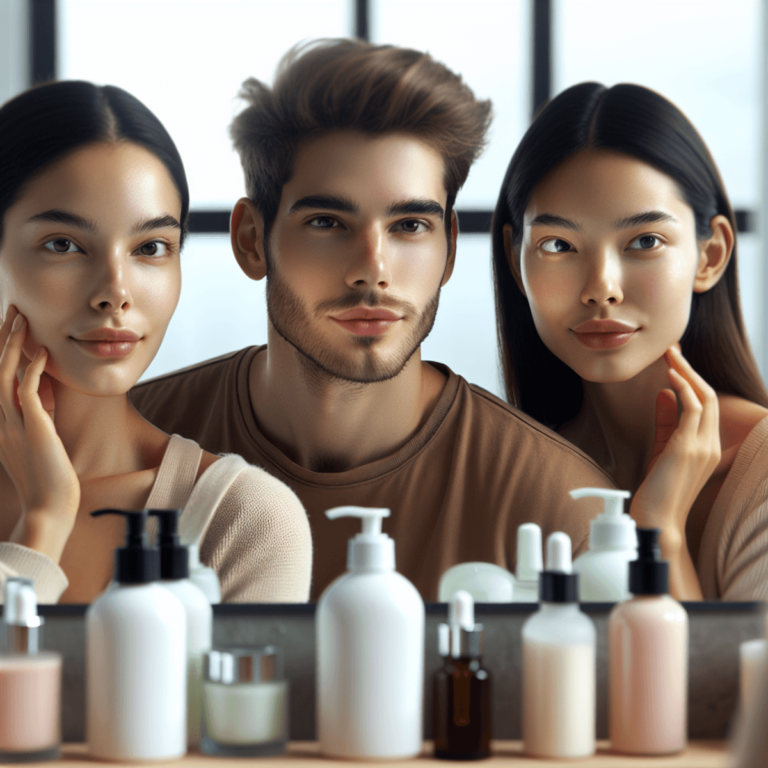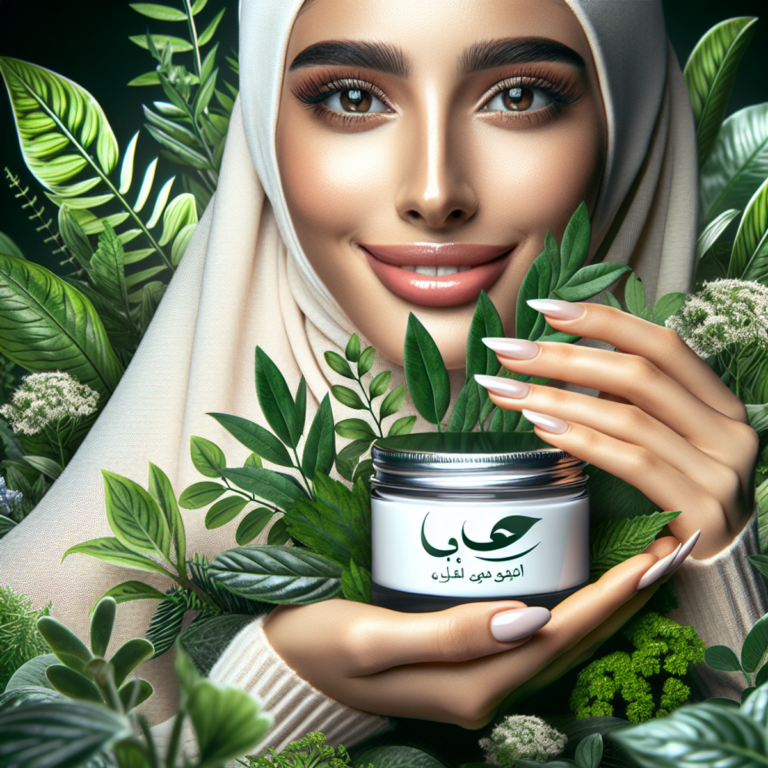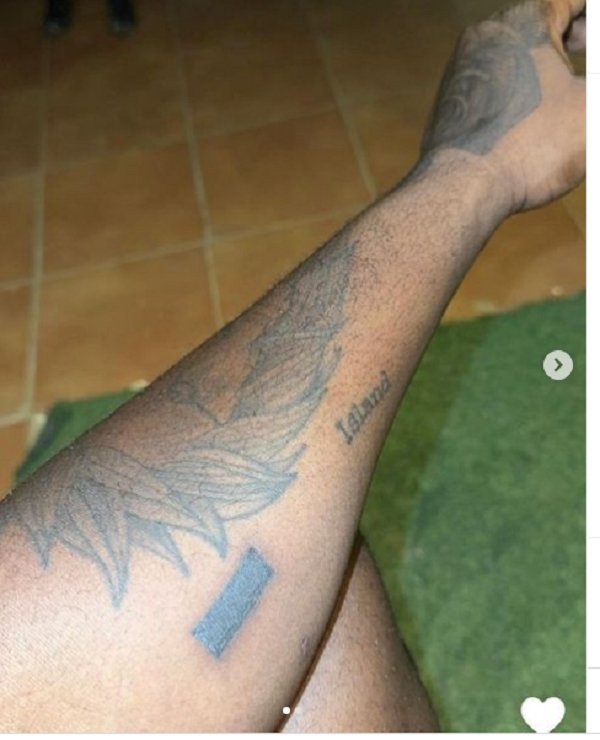Stress Acne: Why It Happens and How to Get Rid of It

Introduction
Stress acne is a common issue that many people face, particularly during periods of heightened anxiety or pressure. When stress levels rise, the body’s response can significantly impact skin health, leading to unwanted acne breakouts. Elevated cortisol levels and other stress hormones increase oil production in the skin, which can worsen existing acne conditions.
Understanding the causes and management of stress acne is crucial for maintaining clear skin. By identifying the physiological mechanisms behind stress-induced breakouts and implementing effective skincare routines and lifestyle changes, you can reduce the impact of stress on your skin health.
What Causes Stress Acne?
The Role of Cortisol in Acne Development
When you’re stressed, your body produces more cortisol, a hormone that helps you deal with stress. However, too much cortisol can mess with your body’s systems, including your skin. It makes your skin produce more oil and can cause inflammation, both of which can lead to acne.
How Stress Increases Oil Production in the Skin
Stress hormones like cortisol directly affect how much oil your skin makes. When you’re stressed, these hormones are released into your body and signal your skin to produce more oil. This extra oil can mix with dead skin cells on your skin’s surface, creating a perfect environment for acne-causing bacteria. That’s why stress often results in breakouts.
Mechanisms Leading to Clogged Pores from Excess Oil and Dead Skin Cells
When there’s too much oil and dead skin cells on your face, they can get stuck in your pores. This forms a blockage that leads to whiteheads, blackheads, and pimples. Additionally, this buildup encourages the growth of bacteria called Propionibacterium acnes (P.acnes), which loves oily conditions. Your body’s immune response to these bacteria makes the area even more inflamed and painful.
Understanding these processes shows why it’s crucial to manage stress well. By keeping cortisol levels in check and controlling oil production through skincare routines and lifestyle changes, you can greatly reduce the impact of stress on your skin health.
Identifying Stress Acne Symptoms
Recognizing the symptoms of stress acne is crucial for timely and effective management. Understanding how stress-induced breakouts manifest can help you tailor your skincare routine and lifestyle adjustments more effectively.
Common Symptoms of Stress Acne
Stress acne often shows up with specific signs that are different from other types of acne. You might notice:
- Inflamed Pimples: Red, swollen spots that are typically painful to touch.
- Whiteheads and Blackheads: These non-inflammatory lesions can appear alongside inflamed pimples.
- Increased Sensitivity: Your skin may feel more sensitive or reactive than usual.
Identifying these symptoms early can prevent further aggravation and make treatment easier.
Where Stress Acne Usually Appears
Knowing where stress-induced breakouts usually happen can give you more hints about stress acne:
- Face: Especially on the forehead, cheeks, and jawline.
- Chest: Acne on the chest is often linked to sweat and increased oil production.
- Back: Known as “bacne,” these breakouts are common due to the high concentration of oil glands in this area.
These areas have more oil glands, making them more likely to have flare-ups during stressful times.
How Bad Is It? Assessing Severity and Impact
Understanding how severe your stress acne is will help you decide on the best way to treat it. Think about these factors:
- Frequency of Breakouts: How often do you experience these flare-ups? Frequent occurrences may indicate a need for a comprehensive treatment plan.
- Intensity of Symptoms: Are the pimples mild or severe? Severe cases often require professional intervention.
- Impact on Well-being: Does your acne affect your self-esteem or daily activities? Emotional distress from acne can exacerbate breakouts, creating a vicious cycle.
Evaluating these factors helps in customizing an effective treatment regimen tailored to your specific needs.
The Psychological Impact of Stress on Skin Health
How Common is Stress-Related Acne?
Emotional stress plays a big role in causing acne, affecting a large part of the population. Studies show that 50-80% of people see their acne get worse because of psychological stress. This data shows just how common stress-related acne is and how much it can affect skin health.
Understanding these numbers highlights why it’s important to deal with both emotional and physical factors when managing breakouts caused by stress. It’s crucial to recognize that psychosomatic skin problems are real and need addressing.
What Triggers Acne Flare-Ups?
Psychological triggers play a crucial role in making acne worse. Common emotional stressors include:
- High-pressure situations: Work deadlines, academic exams, and major life events can spike stress levels, leading to flare-ups.
- Anxiety and depression: Persistent feelings of worry or sadness can disrupt hormonal balance, increasing sebum production.
- Sleep deprivation: Lack of adequate rest can elevate cortisol levels, worsening existing acne conditions.
These triggers not only affect your mental well-being but also show up physically on your skin. Recognizing these factors is essential for fully managing acne.
How Does Stress-Related Acne Affect Your Life?
Stress-related acne often goes beyond physical discomfort, impacting one’s confidence and social interactions. The visibility of breakouts can lead to:
- Self-consciousness: Concerns about appearance may result in avoiding social events or public interactions.
- Lower self-esteem: Persistent acne issues can negatively affect how you perceive yourself.
- Increased stress levels: The cycle continues as worrying about acne can itself become a source of stress.
This is particularly relevant in cases where individuals suffer from body dysmorphic disorder, which amplifies concerns about perceived flaws in appearance.
Addressing these psychological impacts requires a holistic approach, combining skincare with mental health strategies like mindfulness and relaxation techniques. By acknowledging the emotional components of stress acne, you pave the way for more effective and lasting solutions.
Understanding these elements offers valuable insights into why managing emotional stress is integral to maintaining clear skin. It’s also important to note that stress can have various effects on your face, further complicating the issue.
Managing Stress Acne Effectively Through Skincare and Lifestyle Changes
Importance of a Consistent Skincare Routine in Preventing Stress Acne
Establishing a daily skincare routine is essential for managing stress acne. By maintaining consistency, you can help keep your skin balanced and reduce the likelihood of breakouts. A consistent routine typically includes:
- Cleansing: Use a gentle cleanser twice daily to remove dirt, oil, and impurities without stripping your skin’s natural moisture.
- Exfoliating: Incorporate mild exfoliation 2-3 times a week to remove dead skin cells and prevent clogged pores.
- Moisturizing: Apply a lightweight, non-comedogenic moisturizer to maintain hydration without clogging pores.
- Sun Protection: Use a broad-spectrum sunscreen with at least SPF 30 daily to protect your skin from harmful UV rays.
By sticking to these steps, you help create an environment where your skin can thrive, even under stress. For more detailed guidance, you may find this comprehensive skincare routine helpful.
Recommended Non-Comedogenic Products for Prevention
Choosing the right products is critical for those prone to stress acne. Non-comedogenic products are formulated to avoid clogging pores, making them ideal for preventing breakouts. Some recommended options include:
Cleansers
- Cetaphil Daily Facial Cleanser: Suitable for normal to oily skin types, it effectively removes excess oil without over-drying.
- La Roche-Posay Toleriane Hydrating Gentle Cleanser: Ideal for sensitive skin, this cleanser maintains the skin’s natural barrier.
Moisturizers
- Neutrogena Hydro Boost Water Gel: Lightweight and hydrating, this gel absorbs quickly without leaving a greasy residue.
- CeraVe PM Facial Moisturizing Lotion: Contains ceramides and niacinamide to restore and maintain the skin’s protective barrier.
Sunscreens
- EltaMD UV Clear Broad-Spectrum SPF 46: Combines sun protection with calming ingredients like niacinamide.
- Neutrogena Clear Face Sunscreen SPF 55: Designed specifically for acne-prone skin, it offers high-level sun protection without causing breakouts.
Incorporating these non-comedogenic products into your skincare routine helps ensure that your regimen supports clear and healthy skin even during stressful times. To explore more about effective skincare practices, you might want to check out this ultimate guide for skincare.
Additional Lifestyle Modifications for Clearer Skin
How Regular Exercise Can Help Your Skin
Regular exercise can significantly reduce stress levels, which directly impacts the health of your skin. Physical activities such as jogging, yoga, or even a brisk walk can lower cortisol levels, the hormone associated with stress-induced acne. Reduced cortisol translates to less oil production and fewer breakouts.
Exercise also promotes blood circulation, which helps deliver more oxygen and nutrients to your skin cells. This improved circulation can aid in the removal of toxins from the skin, resulting in a clearer complexion.
Consider incorporating at least 30 minutes of moderate exercise into your daily routine to see noticeable improvements in both your stress levels and skin health.
Why Getting Enough Sleep is Important for Your Skin
Adequate sleep is crucial for maintaining balanced hormone levels. Poor sleep hygiene can disrupt the regulation of hormones like cortisol and insulin, leading to increased oil production and inflammation. These factors contribute to clogged pores and acne flare-ups.
Adopting good sleep practices can make a significant difference:
- Aim for 7-9 hours of quality sleep each night.
- Maintain a consistent sleep schedule by going to bed and waking up at the same time daily.
- Create a relaxing bedtime routine that includes activities like reading or meditation.
By prioritizing sleep, you allow your body to repair itself more effectively, reducing the likelihood of stress-related acne breakouts.
Both regular exercise and adequate sleep are essential components of a lifestyle that supports clearer skin. Implementing these habits can help mitigate the effects of stress on your skin, providing you with a healthier, more radiant complexion.
Effective Treatments for Stress-Induced Breakouts
Over-the-Counter Treatments for Managing Stress Acne
Several over-the-counter (OTC) treatments can help manage stress acne effectively. These options are readily available and can often deliver visible results with consistent use:
- Benzoyl Peroxide: Known for its antibacterial properties, benzoyl peroxide helps to reduce the bacteria that contribute to acne. It also has a mild drying effect, which can decrease oiliness.
- Salicylic Acid: This beta hydroxy acid (BHA) penetrates oily skin and helps exfoliate dead skin cells inside the pores. Salicylic acid is particularly effective in preventing comedones.
- Adapalene: A topical retinoid, adapalene helps to normalize skin cell turnover and has anti-inflammatory properties. It’s available in OTC formulations like Differin Gel.
- Sulfur: Sulfur-based products help absorb excess oil and have antimicrobial effects, making them suitable for treating stress-induced breakouts.
When to Seek Professional Help with Persistent Stress Acne Issues
While OTC products may suffice for mild cases, persistent or severe stress acne may require professional intervention:
- Consulting a Dermatologist: If OTC treatments aren’t providing relief after several weeks, it might be time to see a dermatologist. Specialized treatments such as prescription-strength retinoids or antibiotics could be necessary.
- Prescription Treatments: Dermatologists may prescribe oral medications like doxycycline or topical treatments like clindamycin to target more severe inflammation and bacterial growth.
- Hormonal Therapies: For stress acne linked to hormonal imbalances, oral contraceptives or anti-androgens like spironolactone can help regulate hormones and reduce breakouts.
Understanding the broad spectrum of over-the-counter treatments and knowing when to seek professional advice are crucial steps in managing stress-induced breakouts effectively.
Natural Ways to Deal with Stress-Related Pimples
Looking for natural ways to handle pimples caused by stress? These methods use easily available ingredients that are gentle on your skin. Here are some popular home remedies:
Tea Tree Oil
Tea tree oil is known for its anti-inflammatory and antimicrobial properties, making it a popular choice for acne treatment. Here’s how you can use it:
- Dilute: Mix a few drops of tea tree oil with a carrier oil like coconut or jojoba oil.
- Apply: Use a cotton swab to apply the mixture directly to pimples.
- Frequency: Do this once or twice daily until the breakout subsides.
Aloe Vera
Aloe vera has soothing and antibacterial qualities, making it ideal for treating pimples. Here’s how you can use it:
- Extract Gel: Scoop out fresh aloe vera gel from an aloe leaf.
- Apply: Spread the gel over the affected areas.
- Let It Sit: Leave it on for about 20 minutes before rinsing off.
- Repeat: Use this treatment 1-2 times daily.
Honey and Cinnamon Mask
Honey and cinnamon possess antibacterial properties that can help reduce acne. To create this mask:
- Mix: Combine 2 tablespoons of honey with 1 teaspoon of cinnamon powder.
- Apply: Spread the mixture over your face and let it sit for 10-15 minutes.
- Rinse: Wash off with lukewarm water.
Green Tea
Green tea contains antioxidants that may help reduce inflammation and bacterial growth. You can use it in two ways:
Topical Application
- Brew green tea, let it cool, and use a cotton ball to apply it to your skin.
- Leave it on for 10 minutes before rinsing off.
Drinking Green Tea
- Incorporate green tea into your daily routine to reap its internal benefits.
Apple Cider Vinegar
Apple cider vinegar helps balance the skin’s pH levels and removes dead skin cells. Here’s how to use it:
- Dilute: Mix one part apple cider vinegar with three parts water.
- Apply: Use a cotton ball to dab the solution onto pimples.
- Rinse Off: After 5-20 seconds, rinse with water.
Witch Hazel
Witch hazel is another natural ingredient known for its anti-inflammatory properties:
- Apply Directly: Use a cotton pad soaked in witch hazel to apply directly onto the skin.
- Frequency: Apply once or twice daily as needed.
While these natural approaches offer various benefits, it’s important to test them on a small area first to ensure they don’t cause irritation or allergic reactions.
If you’re wondering how do you get rid of pimples effectively, combining these home remedies with other stress-management techniques can yield positive results.
Quick Fixes for Overnight Pimple Management During Times of High-Stress Levels
When dealing with stress-induced breakouts, sometimes you need overnight pimple removal methods that work quickly. Here are some effective techniques and products to help reduce pimples overnight:
Spot Treatments
Benzoyl Peroxide Gel
- How it works: Benzoyl peroxide targets bacteria that cause acne.
- Application: Apply a small amount directly on the pimple before bed.
- Effectiveness: Helps reduce inflammation and size of pimples by morning.
Salicylic Acid Spot Treatment
- How it works: Penetrates pores to exfoliate and clear out dead skin cells.
- Application: Dab a small amount on affected areas.
- Effectiveness: Reduces redness and prevents further clogging of pores.
Sulfur-based Creams
- How it works: Absorbs excess oil and has antibacterial properties.
- Application: Apply a thin layer on blemishes.
- Effectiveness: Dries out pimples without over-drying surrounding skin.
Natural Remedies
Tea Tree Oil
- How it works: Natural antiseptic properties reduce bacteria and inflammation.
- Application: Dilute with a carrier oil and apply with a cotton swab.
- Effectiveness: Can significantly diminish the size of pimples overnight.
Aloe Vera Gel
- How it works: Soothes and reduces inflammation.
- Application: Directly apply pure aloe vera gel to the affected area.
- Effectiveness: Reduces redness and speeds up healing.
Additional Techniques
Hydrocolloid Patches
- How they work: Absorb excess fluid and protect pimples from bacteria.
- Application: Place the patch over the pimple before sleeping.
- Effectiveness: Flattens pimples and reduces redness by morning.
Ice Cubes
- How it works: Reduces swelling and inflammation through cold therapy.
- Application: Wrap an ice cube in a cloth and hold against the pimple for a few minutes.
- Effectiveness: Temporarily reduces size and redness of the pimple.
Selecting the right product or method depends on your skin type and sensitivity. Whether you opt for targeted treatments like benzoyl peroxide or natural remedies such as tea tree oil, these strategies can provide quick relief during high-stress periods.
Why You Should Take a Holistic Approach to Skincare and Stress Reduction for Long-Term Success Against Stress-Induced Breakouts
To effectively manage stress acne, consider both psychological and physical aspects:
- Skincare Routine: Use gentle, non-comedogenic products to prevent clogged pores.
- Lifestyle Changes: Incorporate regular exercise and ensure adequate sleep for hormone regulation.
- Stress-Reduction Techniques: Practice meditation, mindfulness, or yoga to reduce stress levels.
Embracing a holistic approach addresses the root causes and provides a comprehensive solution to maintain clear skin.
Key Takeaway: Combining skincare and stress management strategies offers lasting results against stress-induced breakouts.
FAQs (Frequently Asked Questions)
What is stress acne and what causes it?
Stress acne is a type of acne that occurs as a direct result of increased stress levels. The primary cause is the elevation of cortisol levels, which leads to increased oil production in the skin. This excess oil can clog pores and contribute to inflammation, resulting in breakouts.
How can I identify if my acne is stress-related?
Common symptoms of stress acne include sudden breakouts in typical areas such as the face, chest, and back. Assessing the severity of your breakouts and their impact on your daily life can also help determine if they are stress-induced.
What psychological factors can trigger stress acne?
Emotional stress and various psychological triggers, such as anxiety or significant life changes, can contribute to flare-ups of stress acne. Recognizing these triggers is essential for managing both your mental health and skin condition.
What skincare routine should I follow to prevent stress acne?
A consistent skincare routine is crucial for preventing stress acne. It is recommended to use non-comedogenic products that won’t clog your pores. Establishing a daily regimen tailored to your skin type can help maintain clear skin.
Are there any lifestyle changes that can improve my skin health?
Yes, regular exercise and adequate sleep are beneficial for reducing stress and improving skin health. Physical activity helps alleviate emotional tension while proper sleep supports hormone regulation, both of which are important for maintaining balanced skin function.
What treatments are available for managing stress-induced breakouts?
There are several options for managing stress-induced breakouts, including over-the-counter treatments like benzoyl peroxide and salicylic acid. For persistent issues, it’s advisable to consult a dermatologist who can provide prescription treatments tailored to your needs.










